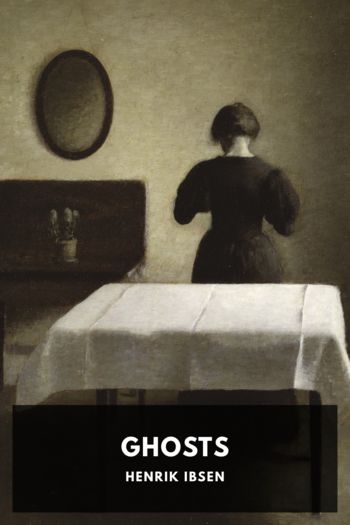Murderous, David Hickson [most read book in the world .TXT] 📗

- Author: David Hickson
Book online «Murderous, David Hickson [most read book in the world .TXT] 📗». Author David Hickson
“We can do that,” I said.
“You need to get over your infatuation. Robyn is damaged. Just because you’re so damaged yourself doesn’t mean it will work. I know you, and I know Robyn. Two wrongs don’t make a right.”
“But three left turns do.”
“Make your jokes if you must,” said Chandler. “You’ve never taken any of my advice. I don’t know why I bother.” He sighed again and regarded me with disappointment. I did not jump in to explain why he should bother because that was unnecessary. Chandler had been an extraordinary man to serve with; the kind of leader that engenders in his squad a dedication that goes beyond trust and respect. We would have followed him anywhere, and we did. Wherever Her Majesty’s Government saw fit to send us. Even when that meant travelling to northern Uganda to defend gold mines from terrorists from the Congo. And we did it without asking why the British government would have any interest in protecting privately owned gold mines. That had been the power of Chandler’s leadership. He had gone in first, and we had followed without question. The questions came later, after things had gone wrong. After Brian had been killed. After my discharge from the army because of my failure to see things their way.
Chandler was shaking his head now, preparing to cease offering me his unsolicited advice. I should have said I was grateful. Or said something about what his friendship meant to me, but that was not how our relationship worked.
“I have an idea,” I said. “A possible solution to our logistical problem.”
“An idea that has to do with that khaki folder? Something you’re doing for the government goons?”
“Yes.”
“They’ve employed you to find BB’s gold for him?”
“Not quite.”
“You didn’t tell them that nobody has taken BB’s gold?”
“What they’ve asked me to do has nothing to do with BB’s gold.” I said, but I knew that Chandler wanted to say his piece.
“As long as the gold is still on BB’s property,” said Chandler, who loved to repeat the good bits, “it hasn’t been stolen.” He beamed with satisfaction.
“I know.”
Chandler poured us both some more wine. He liked to be the person who didn’t need to have his ego stroked, but my two word response didn’t do it for him. He raised his glass to me and flattened his lips. He knew I would not congratulate him on the brilliant idea behind the crime of the decade. Particularly not when that brilliant idea had some large holes in it, and a few crucial unanswered questions.
“Drink up then,” he said. “You can tell us all your idea. The others are waiting.”
Five
I told Chandler my idea as he drove us to the Cape Town docks in his custom Jaguar XJR, with matte bronze finish and working heater. It was a good deal more comfortable than my Fiat. And it had eight hidden speakers that played us a Dvořák cello concerto with such clarity that it felt as if we had front row seats. Chandler tutted when a woman in row H coughed, and he blinked when the climactic notes faded before the applause. The rain clouds were still not spent, and as we nosed our way over the broken road and rusty steel tracks leading down the quay, the rain hid the city behind us. We were on one of the outer quays of the old Cape Town docks, a quay that had survived demolition because it provided a useful barrier against the chilly Benguela current, recently spawned from the Agulhas current, churned up in the Agulhas retroflection region to the south. Certainly the sea on the eastern side of the quay was looking pretty angry about the whole thing. Chandler pointed out, after explaining the currents, that he was not an oceanographer, just in case he had confused me with this information, but explained that it was helpful to know these things if you were planning to bring a ship in from the east coast in order to transfer items of value into the warehouse at the far end of the quay.
We parked outside the warehouse, the nose of Chandler’s Jaguar nestled in between the waist-high concrete bollards, then splashed our way across the tracks and through a small steel door to which Chandler had the key.
The lights were on, which pleased Chandler. They were fluorescent strips mounted ten metres up on the beams of the pitched corrugated steel roof. They lit the echoing space of the warehouse, which was the size of a small sports field, highlighting the decrepit state of the three ships’ hulls that occupied that space. About each hull was scattered the detritus of the shipbuilder’s craft. Brushes, paint tins, sanding machines, drills and rusty toolboxes that looked as if they had accidentally burst and coughed up their tools.
“Good job,” said Chandler, and he patted Fat-Boy’s large shoulder as a reward. “Fat-Boy got us hooked back into the grid,” Chandler explained to me. “It’s better than stumbling about with torches, isn’t it?”
Fat-Boy did not look as if he thought it was. He stared glumly at the warehouse.
“It’s big,” he said.
“It is,” said Chandler, and tried to make that sound like a good thing, but Fat-Boy was not impressed. His face drooped naturally, having a pear shape to it beneath the flared Xhosa nostrils. The face integrated well with the rest of his body, which extended the pear-shape down to a sizable belly. His left eye was lazy and drooped, enhancing the impression that he was disappointed by all that he saw. He turned to me and his face twitched with displeasure; a slight lifting of the droopy eye, and the edges of his mouth turned down.
“Angel,” he said with little enthusiasm. I was the most recent addition to Chandler’s small team, and Fat-Boy was not convinced that I deserved to be there.
“Hello, Fat-Boy,” I said and





Comments (0)